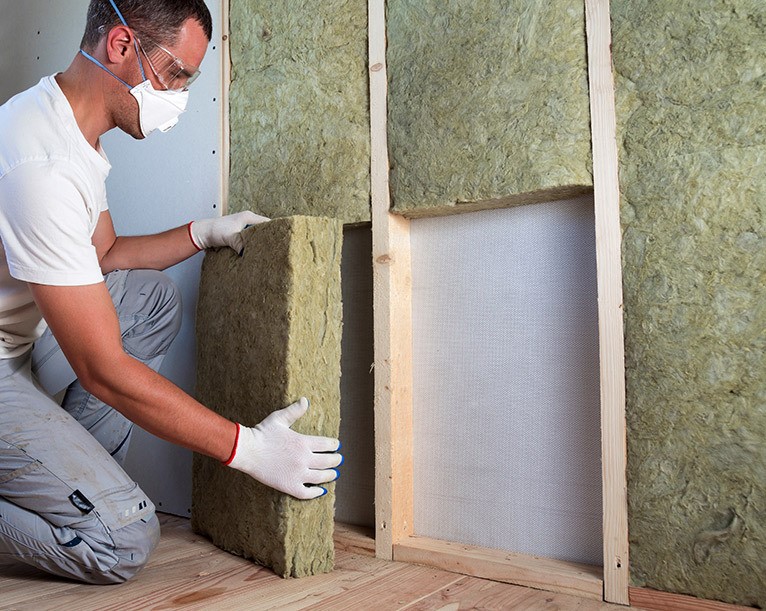Pros And Cons Of Cellulose Insulation

Cellulose insulation is an eco-friendly, affordable and efficient form of insulation that has been gaining popularity in recent years. It is made from recycled paper products such as newspapers, magazines, and cardboard boxes, making it a sustainable option for insulating homes and buildings.
However, like any other material, cellulose insulation also comes with its own set of pros and cons. In this article, we will discuss the advantages and disadvantages of using cellulose insulation to help you make an informed decision on whether it is the right choice for your home or building.
What is Cellulose Insulation?
Cellulose insulation is a type of thermal insulation made from recycled paper products that have been treated with fire-retardant chemicals. This material is used to prevent heat transfer, keeping buildings warm in winter and cool in summer.
The process of making cellulose insulation involves shredding and grinding the paper products to create small fibers. These fibers are then treated with chemicals to make them resistant to fire, pests, and mold. The end result is a fluffy material that can be blown in insulation or sprayed into walls, floors, attics, and other areas of a building to provide insulation.
This type of insulation has been around since the 1920s and was commonly used before the introduction of fiberglass insulation. However, it has gained popularity in recent years due to its eco-friendliness and effectiveness in reducing energy costs.
Pros and Cons of Cellulose Insulation
Now let's take a closer look at the pros and cons of using cellulose insulation:
Pros:
Eco-friendly
One of the biggest advantages of cellulose insulation is its eco-friendliness. As mentioned earlier, it is made from recycled paper products which help to reduce waste in landfills and conserve natural resources. In fact, for every ton of cellulose insulation used, an equivalent amount of paper that would have otherwise been sent to landfills is repurposed.
Additionally, the production process of cellulose insulation requires less energy compared to other types of insulation such as fiberglass and foam. This means lower carbon emissions and a smaller environmental footprint.
Plus, cellulose insulation is also biodegradable, which means it will not contribute to pollution. This makes it a sustainable choice for both homeowners and the environment.
Cost-effective
Another advantage of cellulose insulation is its affordability. It typically costs less than other types of insulation, making it a budget-friendly option for those looking to reduce their energy costs without breaking the bank.
Moreover, due to its high density and ability to fill small gaps and crevices, cellulose insulation can provide better energy efficiency compared to other types of insulation. This results in lower utility bills and long-term savings for homeowners.
Energy-efficient
Cellulose insulation's ability to provide better air sealing also makes it more energy-efficient. The small fibers fill in gaps and crevices, creating a tight seal that prevents air leakage. This results in a more consistent temperature throughout the building, reducing the need for heating or cooling systems to work harder and use more energy.
Additionally, cellulose insulation has a higher R-value (a measure of thermal resistance) compared to other types of insulation, meaning it provides better insulation and helps keep buildings warmer in winter and cooler in summer.
Provides better air sealing
As mentioned earlier, cellulose insulation's ability to fill small gaps and crevices makes it a great option for air sealing. This not only helps with energy efficiency but also improves indoor air quality by reducing drafts and preventing allergens and pollutants from entering the building.
However, this can also be a disadvantage as improper installation or lack of moisture control can lead to mold growth and reduced effectiveness over time. It is important to have cellulose insulation professionally installed to ensure proper coverage and avoid any potential issues.
Cons:
Susceptible to moisture damage
While cellulose insulation offers many benefits, its susceptibility to moisture damage is a notable drawback. If exposed to moisture, the paper fibers can absorb water, leading to mold growth, reduced insulation effectiveness, and potential structural damage to the building.
This makes it particularly important to ensure proper moisture control measures are in place, especially in areas prone to high humidity or where leaks are a risk. It's crucial to have a professional inspect and install the insulation to mitigate these issues and maintain its long-term performance.
Additionally, installing vapor barriers can help protect cellulose insulation from moisture-related problems. And if any damage does occur, it is important to promptly address and resolve the issue to prevent further damage.
Can settle over time
Another potential downside of cellulose insulation is that it can settle over time. This means that the fluffy material may compact down, reducing its thickness and ability to provide adequate insulation.
To combat this issue, some installers recommend adding a slightly higher amount of cellulose insulation than needed initially, as it will eventually settle to the desired level. Additionally, regular inspections and maintenance can help identify any areas where additional insulation may be needed due to settling.
Requires professional installation
Lastly, cellulose insulation requires professional installation. Unlike other types of insulation that can be easily installed by homeowners, cellulose insulation is typically blown or sprayed into walls and spaces using specialized equipment. This means it's not a DIY-friendly option and will require hiring professionals to get the job done.
Moreover, proper installation is crucial for avoiding issues such as settling, moisture damage, and air leaks. It's important to hire experienced contractors who are knowledgeable about installing cellulose insulation to ensure its effectiveness and longevity.
Also, in order to qualify for any manufacturer warranties, it's important to have the insulation installed by certified professionals. While this may add to the initial cost, it can save homeowners from potential problems and expenses overall. So be sure to do your research and hire a reputable company for your cellulose insulation needs.
So, these are some of the pros and cons of cellulose insulation to consider when making a decision about which type of insulation is best for your home or building. While it offers many benefits, it's important to weigh them against any potential drawbacks and consult with professionals before making a final decision.
Is cellulose insulation right for you?
Cellulose insulation offers many benefits such as energy efficiency, cost-effectiveness, and air sealing capabilities. However, it also has some potential drawbacks to consider. So, is cellulose insulation the right choice for your home or building?
The answer depends on various factors such as your budget, location, and personal preferences. If you are looking for an affordable and eco-friendly option with good insulation properties and air-sealing abilities, then cellulose insulation may be a great choice for you.
However, if you live in an area with high humidity or prone to moisture issues, or prefer a DIY installation, then other types of insulation may be more suitable. It's important to consult with professionals and carefully consider your specific needs before making a decision.
The best type of insulation for your home or building will depend on a combination of factors. So be sure to do thorough research and weigh all the pros and cons before making a decision.
Contact Kola Insulation of Greater Knoxville For Your Cellulose Insulation Needs
If you're considering cellulose insulation for your home or building, look no further than Koala Insulation of Greater Knoxville. Our experienced professionals are certified to install cellulose insulation and can ensure its effectiveness and longevity in your property.
Not only do we offer top-quality installation services, but we also provide expert advice and guidance on the best type of insulation for your specific needs. Plus, our team is dedicated to providing prompt, clean, and hassle-free service that will leave you satisfied with the results.
Our insulation services cover a wide range of areas, including residential, commercial, and industrial properties. We also offer financing options to make your insulation project more affordable.
So why wait? Contact us today at (865) 417-9005 or schedule a free insulation evaluation online to get started on improving the energy efficiency and comfort of your home or building with cellulose insulation.
FAQs
What are the pros of using blown-in cellulose insulation in existing walls?
Pros: Blown-in cellulose insulation is highly effective for retrofitting existing walls because it can be installed with minimal disruption to the structure. Loose-fill cellulose insulation can fill cavities completely, offering superior coverage and reducing air leaks. Additionally, cellulose is often treated with boric acid, which enhances fire resistance and deters pests.
How does loose-fill cellulose insulation compare with fiberglass batts in terms of fire resistance?
Insulation pros and cons Loose-fill cellulose insulation, treated with boric acid, has good fire resistance qualities. This makes it a safer choice in scenarios where fire safety is a concern compared to some types of fiberglass batts, which may not have the same level of fire-retardant treatment. However, when wet, cellulose can take longer to dry out, potentially affecting its thermal performance and increasing the risk of mold compared to fiberglass.
What are the cons of using cellulose insulation compared to fiberglass insulation?
Cons: While both cellulose and fiberglass loose-fill insulation have their merits as insulation materials, cellulose can absorb more moisture than fiberglass, which can lead to issues with mold and reduced effectiveness if not properly maintained. Additionally, cellulose tends to settle over time, which may reduce its insulative properties and require additional material to be added later to maintain its effectiveness.
How does the thermal performance of blown in cellulose insulation compare to other insulation materials?
Pros: Blown in cellulose insulation typically offers a higher R-value per inch compared to many fiberglass products, meaning it provides better thermal resistance. This can enhance energy efficiency, particularly in attic insulation applications where preventing heat transfer is crucial. However, the performance can diminish if the material settles or is exposed to moisture, which are factors to consider when choosing the right insulation material for your needs.
Conclusion
Cellulose insulation has many benefits that make it a popular choice for homeowners and building owners looking to improve energy efficiency. However, it's important to also consider its potential drawbacks such as moisture issues, settling over time, and the need for professional installation.
By carefully assessing your specific needs and consulting with professionals, you can determine if cellulose insulation is the right choice for your property. When you're ready to install or upgrade your insulation, be sure to contact Koala Insulation of Greater Knoxville for top-quality service and expert advice.
Find Your Location


Get a quote


